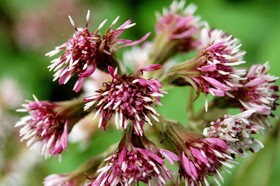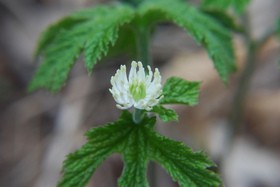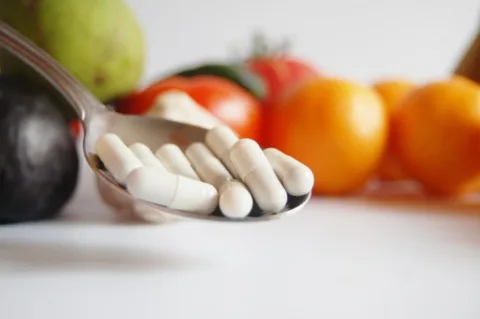It’s that time of year again…
The dreaded pollen counts are rising, and those of us who suffer from pollen allergies are feeling it.
Of course, the type of pollen that is in the air ultimately determines how much of a reaction you will have to pollen allergies.
Some people are more sensitive to certain types of pollen than others. For example, not a lot of people are sensitive to pine pollen.
So if pine pollen has a high count on a particular day, it still may not affect all that many people.
Natural Remedies For Pollen Allergies
While over-the-counter allergy medications can provide some relief, many of them make you sleepy.
Plus, there are all of the other side effects that can come about when taking chemical medications and the fact that taking chemical medications can be hard on the liver.
So, what can you do?
Actually, there are some very good natural remedies for pollen allergies that you might want to try first, before resorting to over-the-counter allergy medications.
When Allergies Are Worst
- March and April are usually the time of year when tree pollens such as pine pollen are most prominent.
- Grass pollens which are more allergenic and affect more people usually have their run from May to July.
- Weed pollens (which are actually one of the ones that cause the worst reactions in my own allergies, think all the white fuzz that is blowing around and you’ll have a good idea what I’m talking about) are most prevalent in August and September.
Grass and weed pollens are the ones that give most people the worst reactions, but tree pollens can affect a lot of people as well, although not necessarily to the same degree.
Following are the best all-natural remedies for treating pollen allergies…
#1 – Butterbur
 This herb has taken Europe by storm when it comes to the treatment of pollen allergy symptoms.
This herb has taken Europe by storm when it comes to the treatment of pollen allergy symptoms.
A study done by Swiss doctors and published in the British Medical Journal showed that when one tablet containing butterbur was taken 4 times a day, it was just as effective as a popular antihistamine drug. Thus, Butterbur shows a good deal of promise when it came to keeping pollen allergy symptoms under control.
#2 – Saline Nasal Spray
As I mentioned in a previous article, I used medicated nasal sprays for over 20 years not knowing that they were addictive or that they could mess up the lining of my nose. I did so in an effort to treat my allergies. Since then, I’ve switched to a saline nasal spray and it really helps. Saline sprays help to clear the pollen out of your nasal cavity, as well as helping to thin and reduce the mucus in your nose. Less pollen in the nose and thinner mucous means that you can breathe easier. I can say from personal experience, that a saline nasal spray has done more for my allergies than even antihistamines in some cases.
#3 – Flavonoids
Quercetin is a flavonoid that is thought to control the body’s release of histamines and other chemicals that have an effect on the body’s immune response to allergens. Specifically, it has been shown to reduce sinus pain and congestion caused by allergies. When combined with Vitamin C and grapeseed extract, the ability to reduce pollen allergy symptoms also increases significantly.
 #4 – Goldenseal
#4 – Goldenseal
A goldenseal tonic has antibacterial and astringent properties. When used with a saline nasal spray, Goldenseal can greatly reduce the symptoms of pollen allergies.
#5 – Hot And Spicy Foods
Hot spicy foods thin the mucous secretions in your nose, thus making your nose clearer. This means you are able to breathe more easily. In fact, the hotter and spicier the food is the better!
Working on the same principle as eating hot and spicy foods, Sinus Buster is a nasal spray that delivers natural hot pepper extract straight to your nose and thins the mucous caused by pollen allergies. Many people who want a natural remedy for pollen allergies swear by it.
#6 – Local Raw Honey
When a person eats local honey, they are thought to be ingesting local pollen. Over time, a person may become less sensitive to this pollen. As a result, they may experience fewer seasonal allergy symptoms.
More research is being done, but here is one case study proving it’s effectiveness in treating pollen allergies.
The Bottom Line On Pollen Allergy Remedies
These are just a few of the natural remedies for pollen allergies that are available.
Be sure to check with a doctor or pharmacist before also taking over-the-counter medications, particularly with remedies taken orally.
In some cases, natural remedies have ingredients that are also in over-the-counter medications and you can overdose by accident.
In other cases, it’s possible that a natural ingredient may interact badly with a chemical one in an over-the-counter medication. So, be sure and check with your doctor or pharmacist before starting to use a natural remedy. Also, avoid echinacea, chamomile, melon, cucumber, banana, and sunflower seeds as having been known to exacerbate pollen allergies.
More About Pollen Allergies
We know a thing or two about allergies since most of our team of writers suffers from them! Here are some other helpful articles from TheFunTimesGuide.com:





